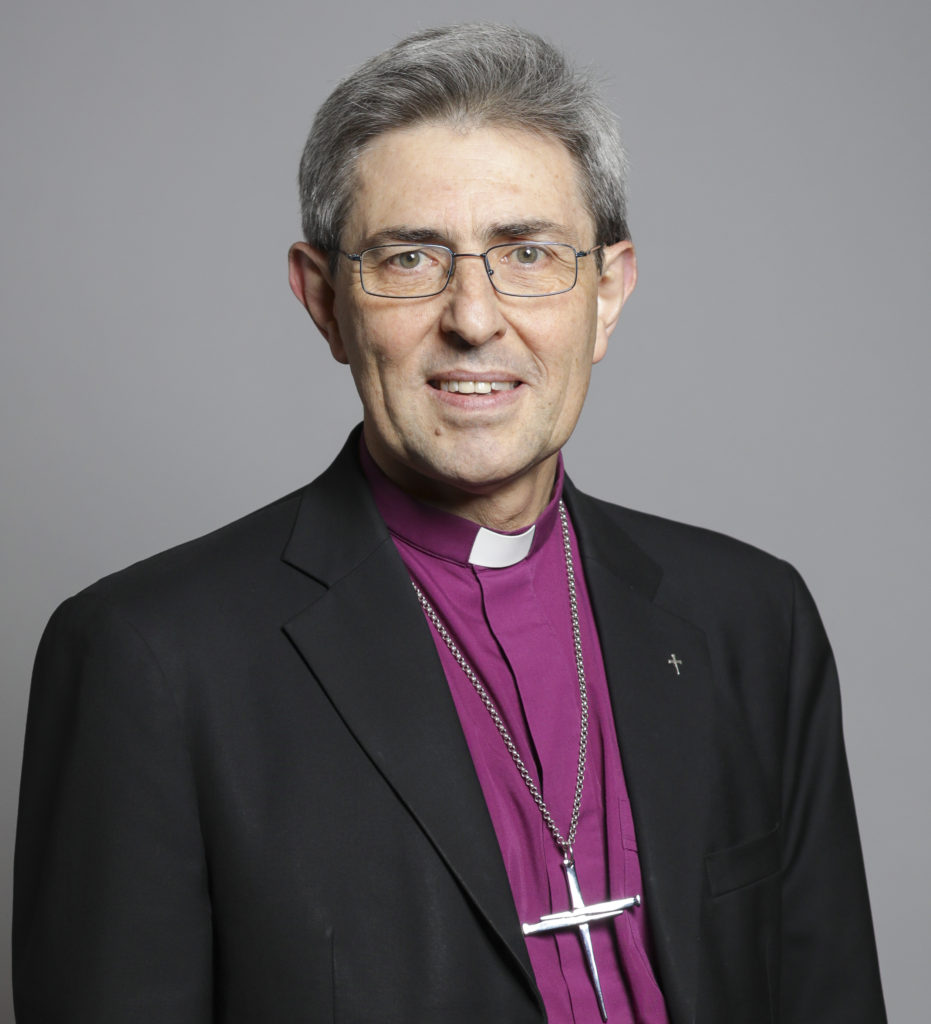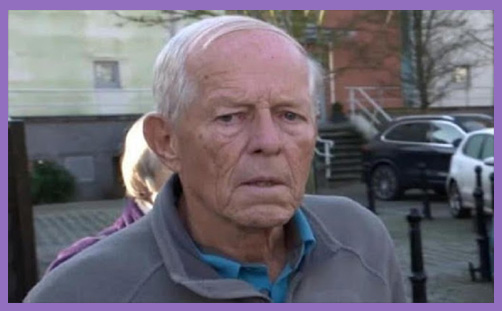

In many ways, the final 30 years of the 20th century were a golden age to be a clergyman in the Church of England. Various issues affecting the profession had found resolution during that time. The first was a levelling up of stipends so that the wide anomalies of pay that had existed in pre-war years no longer prevailed. A second privilege was for the beneficed clergy to have had the security of the freehold. This meant that, assuming that no criminal activity was involved, most difficulties or challenges could be resolved by simply patiently sitting it out. The word ‘living’ meant precisely that. One could stay in a parish right up to the age of retirement. Decent pensions had been established so that many clergy would go on to live useful lives after retirement, free of poverty. The old system of secure tenure, needless to say, had incubated abuses of various kinds. Incompetence or immorality which did not break the law of the land might be hidden and never dealt with. Freehold allowed an eminently unsuitable clergyman to remain in his vicarage without doing any work and obtaining a full salary. Anthony Trollope recounts the 16 year sojourn in Italy of Canon Stanhope for ‘health reasons’. If you were determined to be idle and give your life to collecting butterflies or alcohol consumption, there was very little the system could do about it.
The relatively recent reforms of clergy freehold regulations have given us the system of Common Tenure. Although the wide-ranging privileges pertaining to freehold have been modified, the clergy of the Church of England still enjoy a great deal of employment protection. Gross idleness still exists and there are stories of clergy who have so completely alienated their congregations that they preside over an empty church on a Sunday morning. The Common Tenure system does not find it simple or easy to cope swiftly with a situation of pastoral breakdown. There are regulations in place to resolve these situations, but quite often everyone sits around waiting for an upcoming compulsory retirement. It is still very difficult to move on an Anglican clergyman, as long they are innocent of any criminal behaviour.
Back in 2003 the church introduced the Clergy Discipline Measure (CDM) and this came into effect in 2006. This was to allow the Church to operate a streamlined system of holding clergy accountable in the event of malfeasance. It would also provide mechanisms for any complaints against the clergy to be heard beyond the parish where he/she worked. The alleged offences did not have to be criminal in nature. This Measure came into effect in 2006. Overall, the CDM has not done a great deal to make the system better for all parties. It has in fact done much to undermine the sense of security that the clergy used to enjoy. Complaints under CDM rules are allocated to internal processes within a diocese. The most serious cases come before the diocesan bishop who acts as both judge and jury in some cases. Archdeacons and church lawyers have a part to play in the quasi-legal decisions that emerge from these processes. In spite of some revisions to the Measure in 2016, the Sheldon Trust, based in Exeter, still reports massive stress and unhappiness caused by this legislation. If the clergy of my generation enjoyed too much in the way of legal protection against complainants, then the clergy of this generation have on occasion become vulnerable to harassment and even persecution through the exercise of this Measure.
In the past week the Sheldon document entitled ‘I was handed over to the dogs’: lived experience, clerical trauma and the handling of complaints against clergy in the Church of England, has appeared. This is a harrowing document, and, in many ways, it could be sufficient on its own to put off an ordinand from pursuing his/her vocation. It speaks about the lived experience of stress, uncertainty and life changing fear that can come to anyone who has had to enter the legal processes of the CDM. The current document is also presented as a response to the central Church seeking to replace the old legislation of 2003/2016. Up till this point Sheldon has regarded itself as a partner with the Church in redrafting this legislation and offering its expertise in helping the Church find a replacement for what has gone before. The point has been reached where the Trust no longer feels able to continue this partnership. The gulf of understanding between the two parties has become so wide that the Trust no longer wants to give energy to this process of reform because of the way the Church is conducting this process. In short, the Sheldon Trust is saying to the Church (my precis) ‘we tried to help you but your response to the research we have offered to share with you has been feeble. We have given a lot of time trying to show what an utter monster the CDM has become. If you don’t want to listen then you have to accept that we have to withdraw from the process of cooperation and advice. Our research showed that your legislation just been a source of cruelty and terrible pain for many of your clergy. The vast majority of CDM victims are found to be innocent of any moral failure but they still made to pass through a crucible of life-changing pain. You have received our analysis of what is wrong. You will now have to carry on a reform of the process on your own’.
The Church of England, in short, is being left to make huge changes in its legislation to deal with disciplinary matters connected with the clergy. There have been many accounts of the way the CDMs issued against the clergy have functioned. Two descriptions well sums up the process, inconsistent and devoid of compassion. Some CDM processes have spawned the tortured institution of core groups. It has, however, been noticed on many occasions that few of these core groups are deployed against the bishops themselves. There is, as far as I know, currently no shortage of CDMs in the system somewhere, lodged against bishops. The protocols of the CDM generally does not find it easy to scrutinise the behaviour of senior clergy and so, in most cases, these CDMs of bishops etc seems to be automatically dismissed when they reach the attention of an Archbishop. What the Church is being asked to do in creating a new structure for legislation is indeed massive. The Church of England needs the data gathered by the Sheldon Trust and the collective wisdom amassed by their listening work with over-stressed clergy. These are among those who have experienced real trauma over the years following the arrival of the CDM. It is hard to know whether the Church has the human and organisational resources to produce a new model to replace the CDM failure. The House of Bishops has already agreed that the CDM process is not fit for purpose. In spite of this, it does nothing to halt the notorious Kafkaesque process being played out at Christchurch Oxford. The recent revelations by Private Eye about the restrictions being imposed on the Dean under CDM protocols are grotesque.
How do we see the future of the CDM process or its replacement? The answer is that the labour and time required to create such a new process is enormous. A group of people, with the combined skills of theology, law and pastoral common sense, would need to spend a couple of years working out how the whole process of clergy discipline can be reimagined. Do we have these resources? We probably do, but the people I have spoken with, suggest that we need this work to be done by a completely new set of church officials. The original authors and current overseers of the CDM legislation need to be swept aside. Someone, or better, a group, needs fresh ideas about the best ways to resolve conflict in parishes, while recognising that a system of discipline for clergy is still needed. The Sheldon reports suggest that many complaints have nothing to do with bullying or abuse, but frequently centre on issues of churchmanship. We need perhaps also a new breed of bishops which can get to the heart of such disputes between clergy and laity because they understand the pastoral needs of both sides. In saying this, we are returning to a familiar cry. Give us bishops who are pastors to their clergy rather than judges over them.
I should finish this piece with a brief reflection on the enormously difficult task that faces anyone with authority in the Church having to sort out the problems of the Diocese of Winchester. If Bishop Dakin is unable to agree to whatever is proposed to solve the crisis, the conflict could become very difficult. A diocesan bishop in the House of Lords, even after a public challenge of this kind, still has a great deal of legal clout in the Church. No individual or group at present oversees the bishop of a diocese, and no one is entrusted with the authority to question his/her decisions. The fact of a Diocesan Synod opposing its bishop is, I believe, unprecedented and the ramifications are wide. Church law does not seem to allow for a diocesan bishop to be guilty of anything untoward and there are no obvious precedents. The Bishop Ball case is not a precedent since the current complaints about +Dakin are not about criminal behaviour. CDMs against bishops normally seem to fail, no doubt, on the assumption that bishops are always above unworthy or unethical behaviour. The CDM process failed to anticipate bishops ever coming under scrutiny. Rules and sanctions are for the ‘lower’ clergy. The solution to what has been called by some as Dakingate, is at present unknowable. Whatever happens to bring an end to the current tension, it will require a great deal of money and the attention of legal fixers in somewhat the same way as the Channel Islands breakdown. One has to ask in this situation whether all the right skills are available to the Church at the centre. Do we have the resources of law, pastoral skill and insight that can resolve these dramatic and catastrophic disruptions to the system?
It is ironic that these two major areas of church life which require so much in the way of leadership and technical and legal skill should be taking place during the sabbatical of the Archbishop of Canterbury. One hopes and prays that wise heads will prevail and that we as a Church will come through. Wisdom in high places is what is required, and we pray that it may be found.








